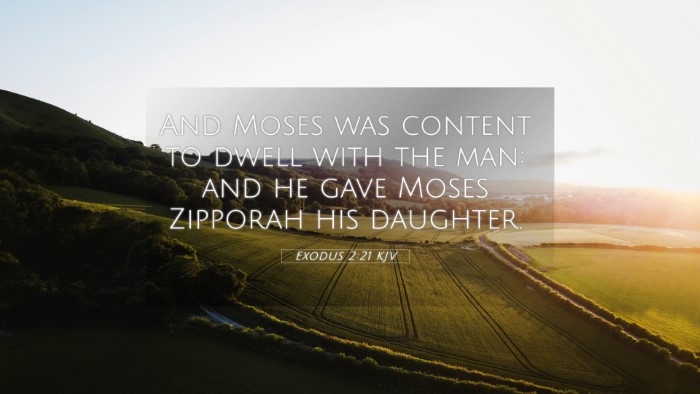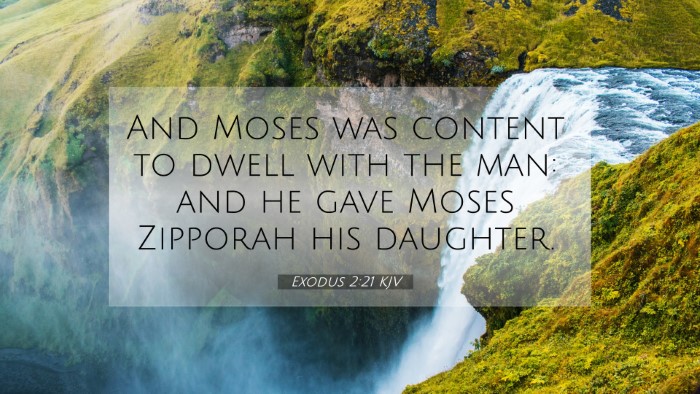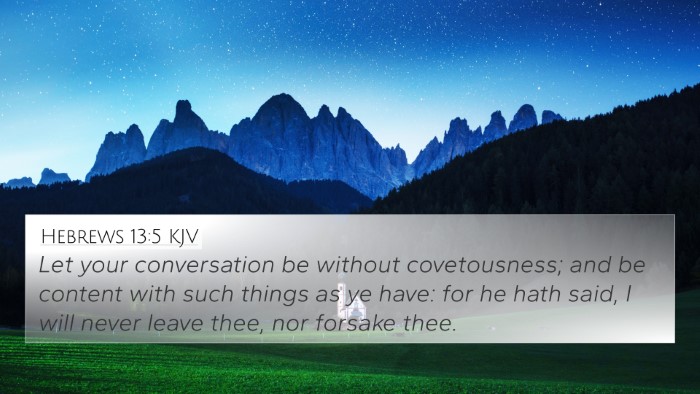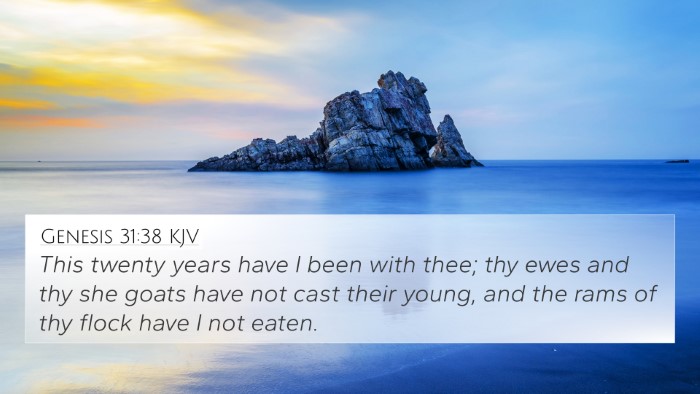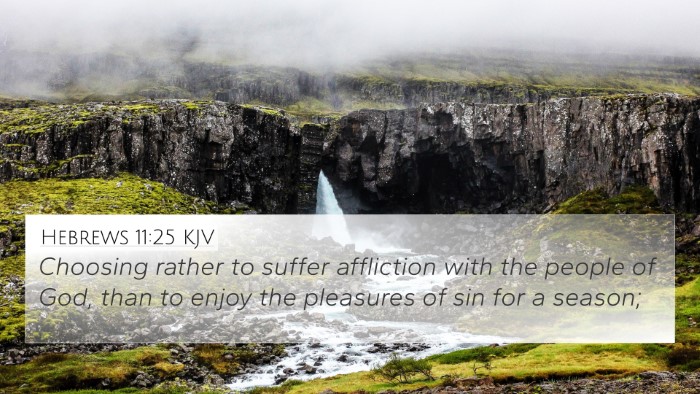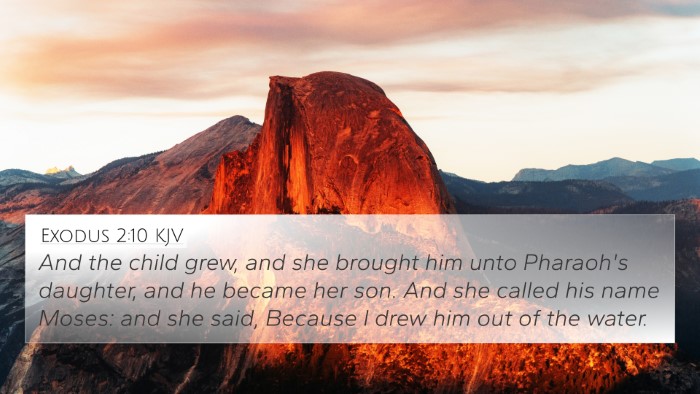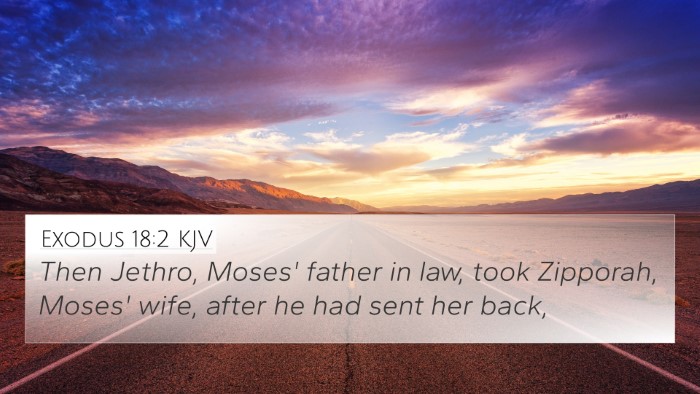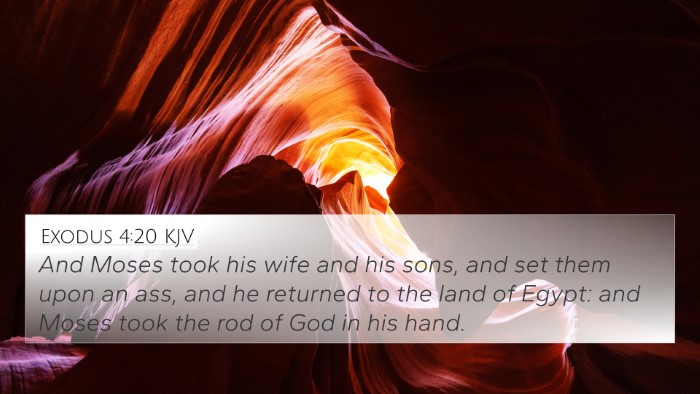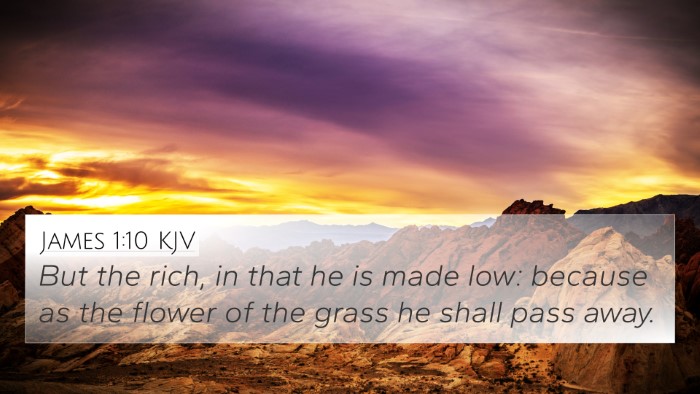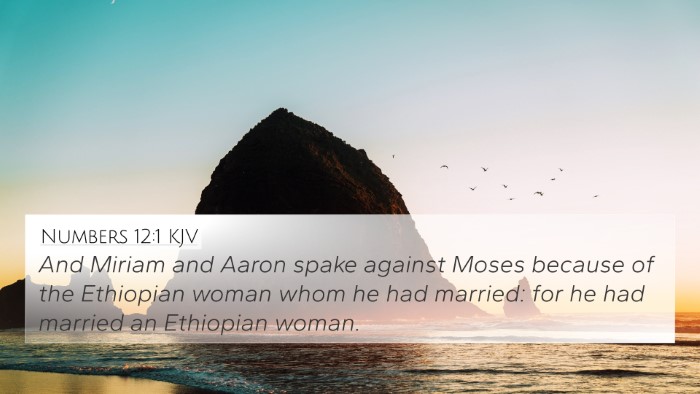Understanding Exodus 2:21
Exodus 2:21: "And Moses was content to dwell with the man: and he gave Moses Zipporah his daughter to wife."
The verse presents a pivotal moment in the life of Moses, reflecting his acceptance of a new life in Midian after fleeing Egypt. This passage not only emphasizes personal choice but also outlines the divine providence guiding Moses' journey.
To gain a deeper understanding of this verse, we can draw upon insights from classic commentaries.
Commentary Insights
Matthew Henry's Commentary
Matthew Henry elaborates on the significance of Moses' settlement in Midian. This was a vital transition that marked a shift from royalty to humble living, teaching lessons of humility and submission to God's will. Henry notes that Moses’ contentment illustrates his character and readiness to embrace God’s plan.
Albert Barnes' Commentary
Barnes highlights the implications of Moses marrying Zipporah, marking a new beginning. He interprets this union as an essential part of God's wider plan for Moses, who will later be called to lead the Israelites out of bondage. Barnes points to the importance of Moses learning to live a simpler life before taking on the burdens of leadership.
Adam Clarke's Commentary
Adam Clarke reflects on Moses’ change in status, noting that God's preparation often includes periods of obscurity and testing. Clarke suggests that Moses’ marriage symbolizes both stability and future divine purpose, as it is through this family that God would prepare Moses for his monumental task.
Key Themes and Connections
The themes present in Exodus 2:21 reflect broader biblical patterns regarding God’s guidance, transformation, and preparation:
- Divine Providence: The movement from the palace of Pharaoh to the desert illustrates God's sovereign plan for Moses.
- Transformation and Preparation: Moses' experiences foreshadow the ultimately transformative role he will play for Israel.
- Family and Covenant: The union with Zipporah emphasizes the importance of family in God’s plans.
Cross References
To understand Exodus 2:21 more fully, we can explore the following Biblical cross-references:
- Exodus 3:10: In this verse, God calls Moses to deliver His people from Egypt.
- Acts 7:29-30: Stephen recounts Moses’ story, emphasizing his time in Midian.
- Deuteronomy 18:15: Moses is prophesied as a future prophet for Israel.
- Exodus 4:24-26: The significance of Moses' family in the covenant relationship with God.
- Genesis 24:3-4: Links to the importance of family and marriage in fulfilling God’s purposes.
- Hebrews 11:24-26: Moses’ choice to identify with the people of God reflects his identity shaped through personal sacrifice.
- 1 Corinthians 1:27: God chooses the weak to shame the strong, consistent with Moses’ humble beginnings.
Thematic Analysis
Examining Exodus 2:21 allows for a comparative analysis with various themes throughout Scripture:
- Leadership Development: Similar to David's time in the fields (1 Samuel 16) before he became king.
- Divine Timing: Parallel with Joseph’s preparation in prison (Genesis 39:20-23) for future greatness.
- Identity and Purpose: Reflected in Esther’s story where she learns her purpose in the Persian court (Esther 4:14).
Conclusion
Exodus 2:21 encapsulates the essence of divine preparation, identity, and purpose. By utilizing tools for Bible cross-referencing, one can uncover profound connections and themes that run throughout the Biblical narrative. Whether it's through a bible concordance or a bible cross-reference guide, understanding these linkages enriches one's perception of Scripture.
Further Study
For those seeking to dive deeper:
- Identify connections: Use a bible reference resource to find links between Exodus and the New Testament.
- Cross-reference themes: Engage in cross-referencing Bible study methods for thematic understanding.
- Explore Inter-Biblical dialogue: Investigate connections between Old and New Testament passages to discover richer meanings.

